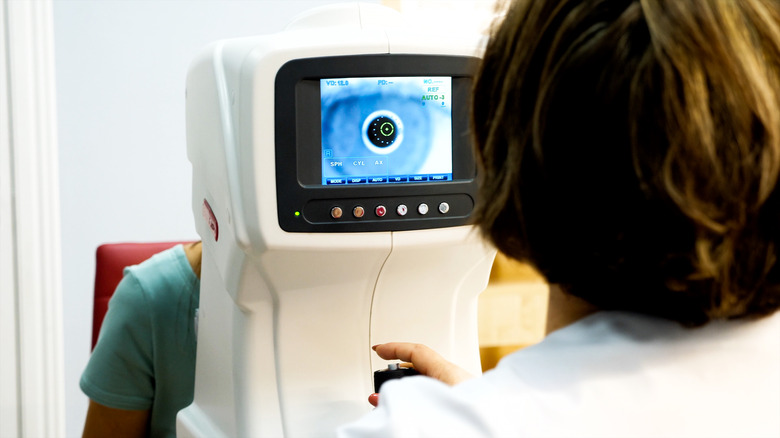Purpose Of A Refractometer
The refractometer is a scientific instrument that is used to measure the refractive index of a liquid or solid sample. Refractometers are used by a number of different industries, including it's use by researchers in the food and beverage industries and by gemologists in the jewelry industry. Those whose hobbies include home-brewing or caring for a saltwater aquarium may also find the use of a refractometer handy.
Definition
Definition
A refractometer is a scientific machine that measures the amount that light is bent (or refracted) when it moves from the air into a sample. Refractometers are typically used to determine the refractive index of a liquid sample.
Types of Refractometers
Types of Refractometers
There are three main types of refractometers. One type is a portable hand-held machine, used to make measurements in the field. There are two types of bench refractometers that are typically used in laboratory or industrial settings. Abbe refractometers, named for the instrument's inventor, are optical-mechanical machines based on Abbe's original design. Automatic digital refractometers are electronic machines that incorporate the use of modern software into their measurements.
Refractive Index
Refractive Index
Refractive index, or index of refraction, is the measurement of the speed of light through a substance. The refractive index (n) is calculated by dividing the speed of light in a vacuum by the speed of light in a substance. The resulting value is a unit-less number between 1.3000 and 1.7000. The value is typically reported to the ten-thousandths place.
Sample Analysis
Sample Analysis
A refractometer is most often used to determine the characteristics of a liquid sample. By calculating the refractive index, a researcher may be able to identify a liquid sample, assess the sample's purity, and determine the concentration of solute (that is, dissolved materials) in a liquid solution. A secondary scale used in refractometry is the Brix scale–this scale relates the concentration of sucrose in water at a certain temperature to the refractive index of the solution.
Uses
Uses
Refractometers are commonly used for quality control purposes in industrial settings, particularly in the food and beverage industries. Refractometers are also used by gemologists to identify gemstones. In addition, home-brewers may use a refractometer to determine the specific gravity of their beer, and home aquarium hobbyists may use a refractometer to determine the salinity and/or specific gravity of the water in their fish tanks.
References
Cite This Article
MLA
Berg, Susan. "Purpose Of A Refractometer" sciencing.com, https://www.sciencing.com/purpose-refractometer-5069941/. 5 June 2009.
APA
Berg, Susan. (2009, June 5). Purpose Of A Refractometer. sciencing.com. Retrieved from https://www.sciencing.com/purpose-refractometer-5069941/
Chicago
Berg, Susan. Purpose Of A Refractometer last modified March 24, 2022. https://www.sciencing.com/purpose-refractometer-5069941/
